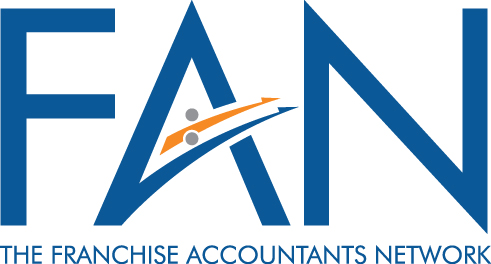How to choose an accountant for your franchise
/ When you are looking for an accountant to work with your franchise, it’s useful to bear in mind there are essentially three types of accountants. There are those that focus on tax, others that focus on the business and there are others that have expertise with franchising.
We’ll discuss the typical characteristics of each of these accountants and highlight their key points of focus. This will let you see the differences between them and help you decide which will best suit your needs.
When you are looking for an accountant to work with your franchise, it’s useful to bear in mind there are essentially three types of accountants. There are those that focus on tax, others that focus on the business and there are others that have expertise with franchising.
We’ll discuss the typical characteristics of each of these accountants and highlight their key points of focus. This will let you see the differences between them and help you decide which will best suit your needs.
Tax Accountants
The majority of accountants work in tax and compliance. This covers income tax, GST, preparing Business Activity Statements, other tax obligations and lodging the tax returns with the Australian Taxation Office.
They also prepare financial statements, which include the balance sheet and profit and loss statement. These show the results for the business at the end of the year.
Tax accountants are also involved in tax planning, which is finding ways to legitimately reduce the amount of tax that clients pay. Increasingly, many are also involved with Self-Managed Superannuation Funds, assisting clients with their own personal super fund.
Most will help their clients with bookkeeping and record keeping, so the accountant can prepare their financial statements, balance sheets, profit and loss statements, and tax returns. Some offer assistance with software, help their clients work with MYOB, Xero, Quickbooks and other small business software packages.
However, tax accountants tend to keep their focus mainly on the tax issues. Most don’t analyse the figures, they just prepare them, and offer little in the way of specific business advice.
Business Accountants
Business accountants focus more on the review and appraisal of the business performance and look for ways to improve it.
They will typically be involved in preparing budgets and cash flow forecasts with their clients. This leads to management accounting which looks at how the results compare with targets, and why the business did not perform as expected. A business accountant will often help clients prepare loan proposals and the cashflow forecasts to support these.
Business accountants may be asked to prepare business valuations and are often involved in getting the business ready for sale. Many work in the specialised areas of estate and succession planning, which is increasingly important as our population ages.
In short, the typical characteristic of a business accountant is that they are actively involved in providing business advice to their clients.
Franchise Accountants
Franchise accountants have particular expertise in working with franchises. They are familiar with the special characteristics of franchising, which are not found in every business. These can affect business and tax planning, as well as the general operation of the business.
For instance, franchise businesses have a contractual relationship between the franchisor and the franchisee. Franchise agreements typically run for a fixed period of time and there may be special provisions relating to the future sale of the business.
There are usually specific franchise obligations which must be met, particularly in regard to the purchase of supplies and equipment, fitout and refurbishment, and the systems and intellectual property of the franchisor.
These all need to be considered and factored into any projections and cashflow forecasts prepared for your franchise, particularly if you need bank finance. Your accountant can also advise on the most appropriate structure for your finance and loans. They should also check if there are requirements to provide reports to the bank, or franchisor on a regular basis.
For a franchise, two of the most important areas to get ‘right’ at the start are your start up costs and the ongoing costs to operate the business day-to-day. This includes your own income. You should work closely with your accountant so these are as accurate as possible. If these projections aren’t done well, it can lead to funding stress and anxiety once you’re up and running. Your franchisor should be able to provide details relating to costs, and your accountant can give you an independent perspective.
What to consider when choosing your accountant
Whichever accountant you choose, it is important that you can communicate freely and openly with them. It works best when there is the free exchange of ideas and information between the two of you.
Your accountant should be able to outline your financial exposure and the risk of being financially committed to the franchise you are investing in. It is important they can and do work with you on preparing your projections and cashflow for the business. This will help you have a clear idea of what’s ahead and the targets you need to achieve.
They should also advise you on the most appropriate tax structure for your situation as well as be able to handle your tax and compliance obligations. Finally, check their experience in franchising and what other franchises they work with. This will give you some comfort they can handle your needs.
So, how do you choose?
As you can see, there’s no such thing as a ‘standard’ accountant. Each will have different specialities and experience as a result of clients they have worked with. So, to choose the best accountant, you need to think carefully about what you are looking for and the specific areas you need help with. Then seek out an accountant who you believe can provided you with the assistance you need.
This article was originally posted at www.smartfranchise.com.au. It was written by Peter Knight. Peter is a co-founder of the Franchise Accountants Network.


